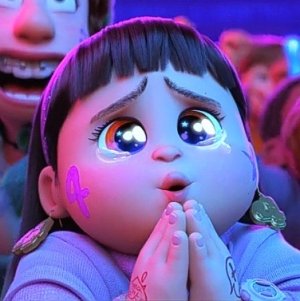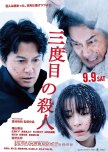
It is a very interesting film that explores the judicial system especially Japan's given its almost 99% conviction rate. It is a good look at how lawyers, the defendants, the victim and even the prosecution work. Indeed, the storyline is intriguing particularly of my fondness of courtroom/crime stories.
Koreeda tries his outmost best to keep his signature gentleness—using music. The opening scene is particularly a contrast. A brutal murder yet you have grand classical piece playing in the background and this goes on throughout the entire film. Perhaps this choice show meaning given its subject.
Koreeda has always been a show-don't-tell director and that's very very true here. The point is not to determine whether the lead is guilty or not but it's more sentimental—typical of Koreeda's film. It's always been about exploration, with more focus on its characters. Here, we get that too. And you have actors that Koreeda has worked with in the past to wrap the film up.
But my problem is The Third Murder just feels...dry. Now, Koreeda's film like I said, has always been about exploration. But My Little Sister for instance, while not having an impactful premise was at least...colorful. But The Third Murder felt too nihilistic for my taste that I found myself closing my eyes at times (because I was sleepy) or check my phone for the time.
Was this review helpful to you?

A Taxi Driver is an incredibly moving, inspiring and brave film. It's a film that honours the bravery of ordinary people, the unsung heroes that battle in the face of fascism and brutality. Taxi drivers, students, journalists—coming together to do one thing: tell the world.
As a journalism student, I have a romanticized view of the type of journalist I want to be—journalists like Peter. Those who risk their life to tell stories that are undiscovered and that are censored. That's the type of journalist I aspire to be. If that's what I'm going to end up becoming is another story. Perhaps that's one reason why the film shook me to my core. Given the political situation in Hong Kong as well and the tension between press freedom and self-censorship here, I feel that, as an aspiring journalist, I have the duty to tell the world things like this—just like Peter, just like Mr. Hinzpeter. And just like Mr. Kim (Sang Kang Ho), who feels that he has the responsibility to his taxi customer—and eventually, to his people.
This is an inspiring film given that to some, especially in a capitalist society (where I'm living), taxi drivers are not seen as honourable jobs. Even today, the reputation of journalists is diminishing. Yet, we have Mr. Kim, a widower who makes-end-meet to provide and care for his 11-year-old daughter as a taxi driver. And despite having to leave his daughter behind and in the face of danger and even death, he owned up to his responsibility.
I will take you to the airport no matter what.
A father that his daughter will forever be proud of.
Perhaps, if you too, see the horror and the brutality that he's seen in Gwangju, you would feel that you have the responsibility to tell the world about it—for a better future for your daughter and future generations. The characters are unsung heroes who are selfless and go through lengths to get the world out there. Jae-sik, a university student (Ryu Jun Yeol) and the taxi drivers.
I have seen many films with Sang Kang Ho in it but to me, this is one of the, if not the best performances of his to date. Sang, a veteran film actor proves his versatility combining comedy and drama and switching between the two with flawless execution. He is the heart of this film. But the soul is the bond, despite short, of the two men: Mr. Kim and Peter. In real life, Hinzpeter tried to search for the real Mr. Kim up until his death in 2016...with no luck. Mr. Kim's son said that his father passed away from cancer four years after the uprising. This film, is a tribute that's too late for the two. And for the other people who helped the two get the word of the Uprising.
Jang Hoon (who worked as an assistant director to Kim Ki Duk) and cinematographer, Go Nak-seon have done a profound job in the film's visuals. The details are apparent and particularly the chase scene between the disguised police and Kim and Peter looks like a sequence out of a dystopian film—a very good parallel to the horror of the fate of the protestors. Its combination of black/red and smoke just produces this eeriness and oozes an apocalyptic mood. That said, the taxi driver vs. military chase scene to me, is an amazing "action" sequence. Not only because of the way it was delivered visually but also emotionally.
Jang and Go makes use of saturated tones to achieve the vintage effect. With occasional slow-motions and close-up particularly during its dramatic sequences (blood flowing out, people getting shot) may perhaps be too sappy for some but it allows not only for drama but also for portraying the horror and a sense of hopelessness. Combine that with hospital scenes and injured protestors of bodies of the deceased—it overwhelms you but it tells you: this is wrong. And that is why we need to tell the world about it.
While A Taxi Driver may be different things like a tribute to the unsung heroes, it also taps on the dangerous roles of foreign correspondents and their local contacts particularly when it comes to war reporting. But this responsibility that we have to tell the world is carried in their heart.
Combining comedy with action is evident in its indoor scene as the characters laugh and cheer only to be swept away by the sound of bombs—looks trying to live normally while caught in the terror of war.
A Taxi Driver is powerful. It is brave. And it is inspiring. Perhaps no words are enough to say how I applaud these people (especially their real life counterparts) on their bravery. No, you don't have to wear a cape to be a hero. You could hold a camera. And you could drive a taxi.
Yup, I definitely cried bucket of tears for this one.
Was this review helpful to you?

Kudos for the wonderful technicalities and truly recreating the real Hashima Island. As with Ryoo's works, the action scenes are impressive—particularly that of So's public bath sequence.
It's a great ensemble, spanning different generations. Hwang's obviously a veteran, one of South Korean's highest paid actions, So, a prominent drama and film actor, Song, one of the nation's sought-after Oppa, Lee, a prominent actress/singer in East Asia and Kim, a rising young actress. It's a dream cast. But the cast can only do so much.
An intriguing premise despite its nationalistic approach. But there's always been this redundancy that seems to spur out of these narratives that are set during the Japanese occupation—we've seen it in Age of Shadows, The Handmaiden, Assassination. Of course, each of these films take a different approach but it also makes me say—again?
Battleship Island lacks...depth and tension. Sure, it had its moments like So's action sequence but it just doesn't have that same spice as say, Age of Shadowswhose 30 minute train sequence moves the story AND character forward. Battleship's characters felt flat. And those with some substance—didn't make it to the end. To me, it felt too dramaticized.
As much as I have a bias for Song and So, they're probably guilty of replication. So had an character but it's not too fleshed out while Song just repeats his DOTS character—what's new from you? Hwang is okay although at times, he is too dramatic. Lee's fine too but again, intriguing but no substance. Kim's particularly better though she cries like 80% of the time.
In war films like this, character drives the film—much more than plot, at least in my opinion. You can have a simple war story but if you have boring characters—it's not enough to cut it. The ending also felt way too..unsatisfying. Sure, it's a film that shows the horrors of war but ultimately, what else?
Ryoo's use of gritty tones and spatial movements plus slick sequences reflect the mood that fit the war aesthetic are impressive though. As well as his use of music particularly to portray irony is also a plus. Also, a really unnecessary love story. Sort of love story. It sort of just didn't make sense.
Was this review helpful to you?

Her Love Boils Bathwater sets itself to be a sentimental family drama. But Ryota Nakano takes a more light-hearted approach. Instead of following a very dramatic ill-single-mother-making-her-time-worthwhile take (and it's very tempting to), he doesn't. Instead, he rallies his great cast to launch the story foreword.
And that's the film's greatest strength—its cast. Hana Sugisaki won Best Supporting Actress for her role and she proves once again that she's one of Japan's most promising young actresses perhaps taking on the footsteps of the chameleon actor, Fumi Nikaido (a personal bias).
Perhaps being Japan's entry to the Best Foreign Film list is a little bit of a stretch since the film is simplistic but heartfelt, strengthened by its cast. Its little moments and character interactions are its charm. Nakano doesn't patronize these characters—he shows them as flawed ones and as imperfect beings but what's great is how that all plays out.
The cinematography is stunning, paired with lukewarm colors yet vivid. The score truly embraces the scenes. Yes, I cried.
Was this review helpful to you?

Pieta in the Toilet is a mix of arthouse feature and an indie flick. Daishi Matsunaga crafts a beautifully poignant film that feels very raw and honest. He does this with simplicity. Forget dramatic sun flares or slow motions, the use of sound, dialogue and camera work makes the emotions overflow.
Noda and Sugisaki have an interesting dynamic much like their respective characters—a struggling painter and an angst-ridden teenager. In them, an unusual friendship forms. It's actually such a treat to see these two interact. Noda embodies a just-get-by character, soft spoken and at times, even delicate and Sugisaki counters that. Loud, headstrong and jarring, she delivers with such fluidity, it's lovely to watch her on screen.
Pieta in the Toilet doesn't patronize. In fact, it doesn't try too hard given its somewhat melodramatic plot. Instead, its characters are the highlight. I would have just probably wanted for the characters to be fleshed out more. And instead of speaking between the lines, it's much more better to be direct. I feel like that part leaves too much blanks to feel.
But nevertheless, the cinematography is to love. And the overall aesthetic and colors are very flat—embodying the film's very characters. Powerful ending.
To those who don't understand the title and say it has nothing to do with the film. Actually, it does. Especially in the final moments.
Was this review helpful to you?
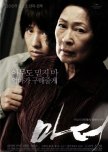
Kim Hye-ja displays a reverse Oedipus complex, protective of her son. Bong's attention to detail is prevalent, using Kim's acupuncture needles as symbolism for males' genitals to reserve the male-female role. Do joon (Won Bin) also highlights a complicated male-female relationship when the murdered girl questions his masculinity, resembling when his friend questions if he has even been with a woman and replies in an outburst.
Much more daring in its use of violence compared to Bong’s similar films like Memories of Murder, Bong’s signature dark aesthetics and gritty tones is a plus in the film’s overall mood. Brutally endearing and heartfelt performances fill this feature.
Was this review helpful to you?

I really love Yukisada's use of light, color and tone here. And to me, that has always been a strength of his since serving as assistant director in April Story, Love Letter and Swallowtail Butterfly (yes, Shunji Iwai's films; hence, the similarity between the two's use of light and color).
Another signature of his is using timelines. He subtly uses that here too. He shows how characters develop, their experiences and how these changes them is a signature. Seeing that Pink and Gray is an adaptation from a novel, which bears similarity to his previous films as well. And finally, Yukisada likes to incorporate love and friendship in his narratives and make them focal points for his characters to develop. That is inevitably true here as well.
Needless to say, Yukisada stays true to his style. But also brings something new to the table. Here, the mystery element is something new. And say, even until the end, it's still mysterious. Not everything is answered. It's very...open-ended. His films to me, have a soft side to them and while the friendship aspect here is that, there's also this desire for answers. The second half of the film also has a daring decision he takes as a director. Is it effective? I think it depends on your cup of tea. It has a purpose to the overall story but it's metaphorical that in a way...seems unnecessary as well.
Perhaps applaud also goes to the great young actors here. Yuto Nakajima, an idol from Hey! Say! JUMP! and the film serves as his feature debut. It's easy to compare it to his co-star, Masaki Suda, a versatile actor with many features under his belt. But Nakajima shines as his own, playing dual characters with clarity: one being a pretty-face docile character and the other a more assertive one.
But since I have a personal bias towards Masaki Suda, my love still personally goes to him. Playing Riba-chan, an angry and even dark misfit is a role not foreign to Suda. In fact, roles like this are his best. Baring a charismatic and attractive demeanour, he also plays Naruse very well. That laugh while blood pours from his mouth is haunting. Kaho is very much the same. Playing a timid, quiet girl at first and then transforming to a seductive heiress. Love the addition of Yuya Yagira here too.
Besides the use of light, color and tone, I think that the score also makes the film feel much more sentimental. I really love how Yukisada played with the narrative here without dropping any hints whatsoever, the twist/reveal at the end makes it so much more satisfying.
Was this review helpful to you?
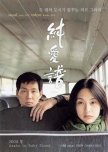
The film looks at two characters who longs to be anywhere but here, who live mundane, dull lives dreaming of escape—one they seem to reach, virtually. These two lonely individuals, U-in—a civil servant who works on routines, lives in a big empty apartment, has no 'real' friends and is living away from family is sexually frustrated and lonely and Aya, a young woman preparing for her college entrance exams, has a partner-swapping parents, a brother stuck on manga who wishes to die.
U-in seems to embody the non-assert type, perhaps plagued by years of having been alone and frustrated—a type challenged by the assertive, aggressive Mi-a, whom U-in develops an infatuation for. In a way, this relationship is a contrast of sorts, each of them being at the end of each other's spectrum. U-in's quiet and sad demeanour is turned down by Mi-a's rebellious red hair, smug glances and mysterious vibe—something a typical and symbol of absolute freedom, one that U-in doesn't seem to achieve, except perhaps at night when he's engrossed at his internet porn.
But see, rain fascinates him (just as much as his co-workers), the light of his computer and even the happenings outside his room—reminiscent of the office life and tough "salaryman" duties while Mi-a, dully holds two pieces of eggs seeming to dismiss traditional femininity imposed on her and more to that, dismisses it as the film reveals her sexuality—a slap to U-in face.
In some way, Mi-a is also the total opposite of Aya. While Mi-a's rebellious look stands out, Aya is quiet and soft, meek-looking young adult. But ultimately, the very symbol of teenage angst—she wants to die. And die a death that she can choose as she believes that this is the greatest freedom one can have. While Mi-a actively lives the way she wants, Aya wants to die the way she wants, mysteriously, between today and yesterday.
It's interesting how U-in and Aya's relationship played out, starting from the screen, possible because of consumption and money. It seems like compared to Mi-a, U-in has control of "Asako", Aya's virtual identity, having the choice to zoom, pan, control the cameras and it seems like at some point, Asako responds to his command, much to his happiness—this shows how 1. the virtual reality provides comfort "for lonely men", reminiscent of the commodities present in Japan 2. how the two lonely individual connect through untraditional means (sex industry).
It's also interesting to know that Aya's ruby shoes or Alasakan background represent a fantasy. Like Dorothy's shoes, it seems to provide escape, a sense of illusion and fulfilment. But unlike Dorothy's shoes, it does not change anything for Aya—as shown when she just bought it and then a piece of chewing gum gets stuck on it. In a way, like Mi-a's hair, the sparkling ruby shoes seem to show something like a wish, fascinating illusion of escape. The two regardless of ethnicity, of place, of time—connect, made possible through the internet.
The underlying social commentary lies more with inter-ethnic and political reconciliation of the absence of the "South Korean women" in the film.
Was this review helpful to you?

Take note that I watched the second half of the film without subtitles and relied on my very little Japanese. But despite that, the film isn't short of what it intends to do. The contrast is particularly strong here.
The narration straight-up unfolds the narration and the setting. And we are introduced to Saori (Kou Shibasaki) who's always in a scowl, looks pissed and feels frustrated. That frustration bubbles up when the she starts working at the House of Himiko.
And the film takes time to get to know the characters through Saori's eyes. Hence, it's not a narrative that just focuses on homosexuality alone but also how others come to accept them. Saori's hatred is apparent. She refuses to hide her anger. Her disgust. She lets it out. To the people there. To her father (Min Tanaka). To Haruhiko (Joe Odagiri). But like Saori, these characters don't flutter. They remain themselves.
The film magnifies how people put on this wall, creating their own disillusionment and why this exists. Haruhiko tries to act together. But eventually breaks down later. Saori hates her father for leaving her and her mother but doesn't really take the time to know why, standing by the wall she built—that wall of hatred.
The House of Himiko acknowledges that its characters are not perfect but it also looks at these choices with reason and forgiveness. By looking at the backstory of these gay men, it gives them a backbone, making their stories understandable. Undeniably, the film does still have tacky stereotypes of dance number, cosplay and pretty boys. But ultimately, these stereotypes do not hinder the characters and what the film wants to show.
Kou Shibasaki here, barefaced, deglamourized is able to show her versatility as an actress. In the beginning, her face is full of utter distain, disgust. But later on, we see her smile and dance. Min Tanaka, despite his few lines gives an amazing performance. He embodies a seductive yet masculine look despite being a dress. He has power and he holds it right.
Of course I am fangirling over Joe Odagiri. And I cannot believe he was already 29 in this film. I refuse to believe it. But the heartthrob's character here is nothing short of Odagiri's trademark of a quiet, charismatic damaged soul.
Perhaps the lack of subtitles at the second half of the film did left me with question marks. But I gathered that the film's focus on sexuality doesn't only relay on its gay characters but if sexual tension is enough to form a relationship on Saori's part. I mean, I wouldn't be able to resist Joe Odagri too.
Was this review helpful to you?

National identity, particularly, Japanese identity has long been a topic that plagues the country and the marginalized communities that live there. As a society, Japan values its pureness and seems to have always tried their best to retain this. Telling enough, Japan is 98.5% Japanese and 1.6% are foreign citizens.
Sugihara, seems to be your average-Japanese high school boy. Except that he's not ethnically Japanese. He's South Korean up until recently. In order to defend himself, he uses violence. While this is deeply used in the film, it actually shows a different side, on how, being an “outsider” requires you to put up an extra level of defence even if it’s a terrible type of defence.
Interesting enough, Sugihara seems to insist that that his narrative is a love story; repeating is countless times. Yes, on face value, it is a love story between him and Sakurai, a Japanese. But ultimately, I see it more as a love story between himself and his identity. Ironically, it seems like Sakurai and Sugihara click because of their love for non-Japanese things. Except that his true ethnicity gets in the way from Sakurai’s very Japanese and prejudiced upbringing.
Yukisada uses love to magnify Sugihara’s struggles. Romantic, friendship and familial no matter how subtle the latter two are. Sugihara’s relationship with his North Korean (who gave up his identity to be a South Korean to be able to go to Hawaii) is strained; reinforcing his own relationship to his Korean side is lopsided. He went to a North Korean school, only to choose to go to a Japanese school, purely his own choice.
References to non-Japanese pop culture like Mariah Carey, The Shining, Magnolia, Fists of Fury, Jean Claude, Shakespeare and classic music reinforce the otherness.
While the film looks into unconscious racism present in the society but it further tackles the issue of racial identity; as in the North Korean/South Korean/Japanese/Spanish parts of the film. In particular, the quote from Shakespeare’s Romeo and Juliet (What’s in a name? That which we call a rose, by any other name would smell so sweet?) is telling. Our name is part of our identity and that fact that he’s Sugihara even if that’s not his real name, shows the racial identity here.
The opening sequence is particularly telling; with Sugihara on a voice-over, narrating, sprouting words, isolated from his basketball group, in slow-motion.
Race. Homeland. Nation. Unification. Integration. Compatriot. Goodwill. Makes me sick.
Rulers. Repression. Slaves, subjects rather. Aggression. Exclusion. Chosen ones. Blood. Mix. Pure. Union.
So-called Korean-Japanese. Don't think I'm any different. But they call me this. Zainichi.
Enough.
Yosuke Kubozuka’s performance, the young heartthrob during the film’s release is nothing short to dazzle us. He embodies the hidden anger, the raging desire, the subtle disgust, the crumbled struggle and the flourishing love with such clarity. Kubozuka has a great charm, be it in a punk way, a geek way or a boy in love. Of course, yes, I would have preferred so much more if a real zainichi actually portrayed this character.
Such a treat to see Shibasaki again (after her iconic role in Battle Royale), but there could have been more from her. Though undeniably, her chemistry with Kubozuka is affecting and their romance is relevant in the film to normalize Sugihara’s identity struggle.
To which he asks, “What am I?”
To which she answers, "Japanese-born Korean!"
To which he replies, "...a stranger leaving this country. Any name is okay but I don't think I'm an alien. I'm not a Korean or an alien. I'm ME! No, rather, I'm a question mark!"
But to her, it doesn’t matter.
"From the first moment I saw you, maybe I already knew."
Perhaps in love, there is no boundaries. Ethnicity, race, upbringing are all rendered useless. She's the tough guy outside, the one that break through his safe circle.
Was this review helpful to you?

Tokyo Sonata depicts a traditional family: father works, mother is a housewife and sons are studying. Ultimately, this may seem like a typical family where father works, mother nurtures and children study.
But underlining the conventional image of a family, is a broken bond; each struggling on their own.
Father tries to reinforce his status as the head of the family, always bickering about his authority, his fear of losing face because he can no longer provide of his family.
I will protect you!
These are words he needed to do, words he needed to believe but can no longer do.
Mother tries to be the best housewife. She cooks, she cleans the house, she takes care of the children. But she is trapped. She is drowning. She doesn't have a path. In order to be a mother, it seems like she has thrown away herself.
Takashi is aimless. He longs to look for happiness. He longs to protect his country to protect his family. In a way, he tries to do what Father couldn't do in the long run.
Kenji is discovering himself. He finds a passion, a dream but is stopped by Father. A dream, crushed before it can be flourish. His wings cut even before they could be spread.
And so a family disintegrates. Because each member it broken. Because each member chooses to sever the bond that connects them as they face their inner struggles. It begs the question: is family really a family when no one is treating is like family? Does having mother, father and children in one house enough to be called family?
With documentary-like narration and raw visuals, Kurosawa creates something so simple and transforms it into something powerful. Kenji, Mother and Father's (and to an extent, Takashi's) are woven out, put side-by-side but with great clarity and balance.
In the end, the way it concludes is simply by coming home after an epiphany—which all changes every one. Perhaps the answer is that we need to fix ourselves first and then we can start fixing our family.
Each narrative is symbolic. Kenji getting caught. Father on an accident. Mother driving away to the beach. Takashi going to a foreign land. Each one represented something for the characters.
Beautiful score. Great performances from all the actors. But the ultimate cherry-on-top is the final piano performance. Playing the whole song makes you feel at peace, beautiful, tranquil.
Was this review helpful to you?
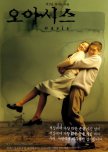
Lee Chang-dong portrays realism with harsh critique of society, at times, disturbing but also very provocative and tender. It is indeed a very challenging narrative to tell but Lee does it with great sensitivity. Lee doesn't romanticized his characters and their experiences but instead, normalizes them in a way that is both different and similar to us. He heavily comments on how society treats marginalized groups but doesn't explicitly tell us, that's wrong but we feel that. We cringe. We shudder. We feel disgusted. Angry. Like we want to do something.
His use of shadows, particularly of light is powerful. These are numerous shots of reflections of these characters -- in the car mirror in the opening shot, in Gong-ju's mirror. The repetitive symbolism of the Oasis, the shadows, the fear, the magic show that Jong-du and Gong-du desire for escape. They create their own fantasy world where they can be happy, fooling around and dancing -- just like anybody else. The shadows that Gong-ju fears and the magic that Jong-du does is particularly important in showing the comfort that the two find in each other.
Please don't disrupt my life, okay?
I could do that too!
I envy people with jobs!
She's watching! It doesn't matter!
I'm already pretty now.
You even call yourself a human?
You have to fit in to society, that's what being an adult means.
The people around these characters force them to become like them -- to fit into society according to their standards of how an adult should be, of now a normal person should be. And it shows how these standards affect the characters. And how when they are together, these standards don't matter. These standards are shit. Screw these standards.
Yes, Oasis is not an easy film to like. At times, it's comfortable. Particularly that scene at the climax of the film. But it's a very important scene that changes these characters -- one that breaks their fantasy world. And now that reflects us -- how we treat them. It is truly okay for them to take responsibility for what you have done just because he has nothing to lose, but you do?
But there is so much genuine and raw emotions here. Moon So-ri's performance is incredibly powerful, playing a character with cerebral palsy with such authenticity and care. A well-deserved Marcello Mastroianni Award for Emerging Actress indeed. Sol Kyung-gu's performance is heartfelt. Having worked on Peppermint Candy, the chemistry of the two is undeniable.
In the end, Lee tells a daring film; one that makes us rethink, provokes us and challenges us. This is a 2 hour of film of brilliance and power.
Was this review helpful to you?

Memories of Matsuko is the lovechild of Confessions, Kamikaze Girls and The World of Kanako. When it comes to visuals, it comes close to Girls, the down spiral storytelling is reminiscent of Confessions, while the almost poetic-nihilism sounds like Kanako. But the film stands at its own.
I'd say, Memories of Matsuko is probably the most visually-appealing film that I've ever seen. Yes, it also resembles Amelie and Moulin Rouge. And to me, an alternate version of a Tim Burton film. I cannot emphasize enough just how beautiful this film looks. With heavy overtones, almost exaggerated, it always seems on edge—keeping us anticipated. And given its rather, tragic narrative, you can't help but not feel sentimental about it because of the way it's presented—at least visually.
This film is really that one that narrates it from beginning to the end. Not perfectly but never failing to highlight the important parts—and connect them as they go. Each one almost shown with immense beauty. Romanticized. Highlighted. Intensified. Because of this, despite Matsuko's struggles in life—it's done in a way that doesn't make it overly teleserye/soap-opera style drama but in a more, comical way.
That said, the film is indeed far from perfect. It's more than 2 hours run is exhausting especially since the narrative follows a pattern—she finds a man, falls in love/depends on him and then gets abandoned. In a moral sense, the film fails at showing us something strong. Yes, Matsuko is a strong character for having to endure such a life and to keep going. But in a way, it always make you question just how true is "It's all about giving than receiving."
You see, how can you keep giving, unconditionally without receiving what you deserve? How can you put up with shitty men who use you, betray you and leave you and be okay with it? Instead of showing us that we should depend on others for our happiness and survival, why can't we depend on ourselves, if after all, all we have is our self? What is wrong with being alone? What is the fear and the shame in that when every one who we tried to accept in our lives, just ends up stepping over us?
I mean, in the end, Matsuko retreats to her world...but if she decided so, why couldn't she have made that opportunity in to a positive one, at least for herself? Does she think so little for herself? Does she think it's all about giving another person love unconditionally but not yourself? Isn't that more toxic than being alone?
That is my primary issue with the film. In a way, it shows us that as long as we love others, then what, we can die happily? Don't glorify death like that as if she actually lived a happy life. In a way, it's extreme normalizing and telling us that the only way to be happy is—to be with a man.
Of course not.
So, to answer her constant, Why
Matsuko, darling, it's simply because all you have to do is love yourself. You prefer solitude, withdrawal, hikokomori? Sure. Go ahead. But at least you love yourself.
But the visual really took my breathe away and I can't deny that despite its sloppy narrative and storytelling, I did enjoy that film. But I'm acknowledging that this isn't a perfect film. If you look past the moral sense (and just enjoy it as a film by itself, I didn't because I had to analyze the film for my film class) then yes, this is great.
Was this review helpful to you?

Okay, I've read the manga—and I loved it. That probably explains why I wanted to love the film too. But don't get me wrong. There are things that I loved about the film too. Yes, the actors. No doubt. I am in love with both Nana Komatsu and Masaki Suda and to me, they are the perfect Natsume and Kou. It seems like, in an hyperbolic way, that Komatsu was born to be Natsume, you know.
The cinematography is just stunning and breathtaking. And the OST. Oh god, the sounds. The sounds are of absolute brilliance. There was a scene where Suda is doing the fire ritual and I felt like the cinema was going to collapse because of the raging and roaring of the fire. The cuts are done in many angles, some in slow-motion to be more melodramatic and sentimental. Which would be fine if not for the major problem.
But get this. The film really really failed in establishing one very important thing from the beginning: Natsume and Kou's relationship.
I've read the manga so the narrative itself is pretty clear to me but honestly, if I were someone who didn't read the manga, I doubt I'd understand. Or worst, I doubt I'd believe the authenticity of their relationship.
The manga establishes their strong bond, their strong connection and their strong (almost drowning ironically) feelings for each other. But the film...okay, I get that there is so much manga material to cover in 111 minutes running time and it did feel draggy towards the end—but it wouldn't have felt that way nor would it raise eyebrows if their relationship was properly established.
What I see when I watch are just two 15-year-olds who are trying too hard to cling to each other without any strong feelings—it seem like something de factor being the both good-looking, mysterious and popular. And I felt that was wrong. Very wrong.
That is why ultimately, this love story is doomed from the start. What salvaged it is Komatsu and Suda's chemistry. Or even Komatsu and Daiki Shigeoka's chemistry. And the amazing cinematography and roaring OST. I felt like there was so much more to these characters, to Natsume, to Kou, to Otomo, to Kana—and it felt like they were just discarded.
Even Kou and Otomo's friendship just got ignored and it's such a pity because the friendship plays a major part in how the love triangle shapes itself. Kana plays a bigger role later in the manga and the film just makes her like a stock character. Otomo gets discarded after his use. And the ending is very open-ended (which I would probably not mind if they fixed the crucial element of their relationship).
I feel like roles like this fit Komatsu well. But it's truly the first role where she's done the most drama. I love her (very much) and I have a bias but I will also be honest and say that she still lots to improve because Suda overpowers her. It's not BAD deadeyefish acting, it just needs to feel...stronger, more foreful. This me saying because she has worked with a lot of Japan's top actors (like Yamaken, Kamiki, Takeru Satoh; heck she even act alongside Andrew Garfield).
Though I guess, her timid, almost suppressed acting here works well for her character because her character has to be beautiful and calm and poised even while crying...it's not heavy drama but similar to what I said to Hirose Suzu before, just because you can cry doesn't mean you need to forget how your eyes show the emotion. And Suda's eyes remind me of my chameleon actors Shota Sometani and Fumi Nikaido—they act, they speak.
But I don't know why Suda looks so malnourished here. Honestly. There are times when it's so uncomfortable to watch him because I'm so afraid he'll break because you can literally see how skinny he is (yes Kou is in the book) but it looks unpleasing. I see a lot of potential in Daiki Shigeoka and the up-and-coming Mone Kamishiraishi.
Ultimately, Drowning Love (a title that actually holds a lot of significance which the film KIND OF touched on but not properly though the original Japanese title is Oboreru Knife which translates to "Drowning Knife") does try to remain a faithful adaptation but it really fails in establishing the leads' connection and relationship. It started off right away, very direct (though the dialogue is very poetic and that didn't work well because it felt like youngsters sprouting wishy-washy words) without much context or at least shape it properly later—which they didn't. It felt like a film with no goal which as romance wouldn't be a problem if you're telling a narrative though here, it felt...directionless with no clear intention. But still, I'll tell you that you will still feel some *feels* because the sounds and visuals would keep you there.
Was this review helpful to you?

Firstly, Alice isn't even the main character's name. Her life is more similar to Cinderella than it is to Alice. But I guess it's a play on the words, "Wonderland" and "Earnest." Our heroine, is, in no way, in a wonderland. She hopes to be. She longs to be. She fights for it through earnest determination. And still fails.
This says a lot. Japanese and Korean society relays very much on the concept of hard work and discipline that they have inherited from China's Confucianism. It's no surprise that having to choose between factory life or "elite" life through studying, she chooses the latter because supposedly, education equals to success equals to eliteness. But later learns that her numerous certificates are useless (or no longer in demand) in an advancing technological world.
Soo-nam is at its core represents both affirming this society of hard work and also ultimately rebelling against it. As she experiences that despite all her hard work, despite all her conformity in doing things to achieve her goals—they are in vain. Feeling betrayed by these ideals, she rebells against these imposed rules.
Hence, why there is anger. But it's not the all-out nor is it hidden anger. It's always been there but it's been subtly shown that it didn't feel too overwhelming. In so many ways, it's dark comedic style and almost-Amelie-like editing style helped to show how she's making fun of things instead of making it too overly dramatic—even if the subject matter is.
But ultimately, this style also drags some of the film's major flaws. In some ways, it's also showing that women in love will do anything for the man they love. Just like Memories of Matsuko, does she really need a man in her life? For all the work she's done, is it truly worth it?
In this day and age, women want to be independent and work for themselves. While there's nothing wrong with wanting to build a family, I think there's this underlying tone that seems to imply who gets to give more to the other. It's not so clear-cut and there's certainly a grey area there but I think that's the part of the film that bothers me the most.
Was this review helpful to you?

